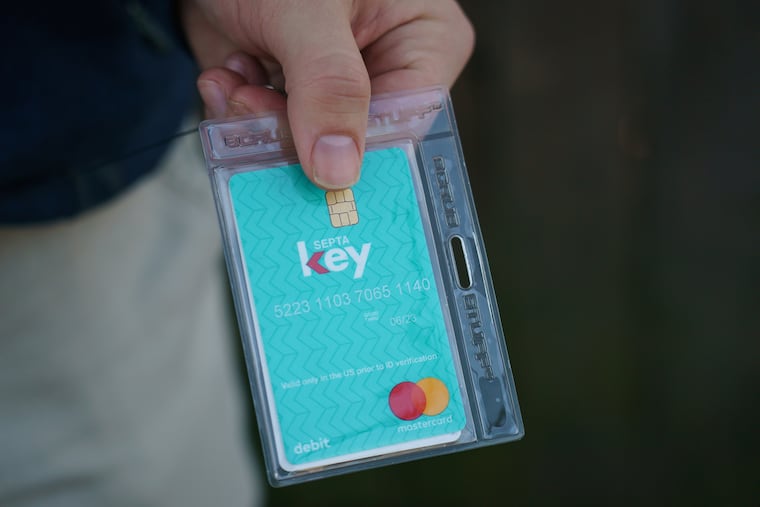SEPTA will pay $230 million for new Key card system after years of glitches on the old one
The board signed two contracts worth $230 million with Cubic Transportation Systems to install the system and operate customer service.

SEPTA’s board on Thursday approved spending up to $230 million for a new company to update its electronic fare-collection system despite concerns about the cost and the risks of switching as Philadelphia hosts the World Cup and other big events next year.
The Key Card went live in 2016 and has been plagued by glitches, especially in the early going, and has cost more than $285 million — at least twice its budget.
The board voted to sign two contracts worth a combined $230 million with San Diego-based Cubic Transportation Systems: $211 million to build the new system, named Key 2.0, and up to $19 million to run a customer service center to support the transition for five years.
Several skeptical board members had raised concerns, and a vote scheduled for December was postponed so they could ask staff more questions.
Cubic will supplant the company that designed, built, and maintains the current system, Conduent Inc., a Xerox spin-off headquartered in Florham Park, N.J.
SEPTA board chairman Ken Lawrence Jr. and several directors defended the spending as necessary during a committee meeting last week.
They said the deal had been vetted for months.
“I don’t recall a time when the board has scrutinized a proposal as much as this,” said board member Dan Muroff of Delaware County.
“There is some PTSD, not just for folks at SEPTA, but also for the region [with Key], and we want to make sure we do this right,” he said.
Key Card’s rollout in 2016 was two years late, and the system has had issues that annoy SEPTA riders, including cards that expire, difficulty loading money on them at station kiosks, and system crashes.
Conduent’s system also struggled to adapt to contactless payments with credit cards and smartphones, which were not widely accepted for fares until 2023.
“This is not to cast any aspersions at Conduent,” board member Robert Fox said. “We’re in a completely different technological stage now than in 2010.”
That’s when design work began on Key 1.0. It was custom-built for SEPTA but not flexible enough to easily adapt to changing needs, SEPTA staff said.
SEPTA put Key 2.0 for bid in March 2023 with detailed specifications. The new system will use open-source software that will be easier to update and faster. Programs that handle charges will be run on the cloud, officials said.
The transit agency plans to phase in the new system to avoid disruptions during World Cup games, the celebration of the nation’s 250th birthday, and the Major League Baseball All-Star Game.